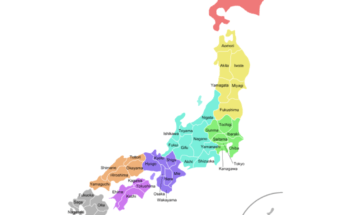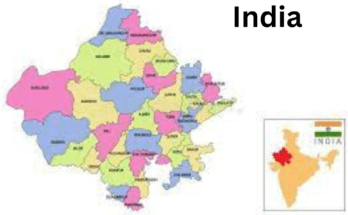The online travel community is made up of all types of interesting folks from bloggers (vloggers, and phloggers, oh my!), digital nomads, influencers, points hobbyists, travel hackers, and more.
Spend any amount of time online amongst this eclectic group of travel enthusiasts, and you’ll come across some jargon that isn’t always easy for the uninitiated to understand. How is one supposed to make sense of the posts and articles they are reading on FlyerTalk and Reddit or on Facebook pages and in Facebook groups, when it’s practically written in code?
Honestly, sometimes it can almost feel like landing in a strange land where you don’t speak the language!
With that in mind, here is my phrasebook to help translate some of the local vernacular. I hope this helps to decipher some of the lingo.
I will keep adding to this glossary as time goes on. If you have any new ones to add, please leave a comment below and I will incorporate you input when I update the post.
Jump to section:
General Terminology
- Churning: the practice of rotating signing up for (and then cancelling) credit cards that offer welcome bonuses to maximize the accumulation of points that can be used for free rewards such as travel or free purchases.
- Code share: an arrangement between partner airlines where bookings on one airline would be delivered on the “metal” (see below) of the partner.
- Fuel surcharge: (abbreviated as YQ) is an additional fee that airlines may charge on reward ticket. The amount of these fees can sometimes reverse the “free” feeling of these reward flights. different airlines have different approaches to charging fuel surcharges, so it is beneficial to learn the different practices of different airlines as considerable savings may be realized by flying with a partner airline.
- Hard Product: The tangible characteristics of travel, such as aircraft type, seat characteristics, spacing, decor, etc.
- Manufactured spending: (abbreviated as MS) artificial spending to increase the amount of credit card points accumulated. Can be dangerous as it may result in a credit company cancelling your card, or in costly debt accumulation if not managed properly (see also organic spending).
- Mattress run: booking a hotel room solely for the purpose of logging the visit for the points accumulation or credit toward loyalty program status (may or may not involve actually staying in the room).
- Metal: To indicate the flight which is actually operated by the airline (i.e. the airline name on the ticket and on the outside of the aircraft actually match). In contrast to a code-share flight (see above) which would be booked with one airline, but on the aircraft belonging to a partner airline.
- Mini-RTW : a 3 (or 4) stop routing (most likely one booked with Aeroplan points) that takes you to multiple destinations (see also RTW).
- Organic spending: the natural spending (using a credit card) that is part of your regular living expenses with no change in buying habits or spending patterns (see also manufactured spending).
- Points run: taking a flight for the main purpose of accumulating points or flight segments towards a status threshold.
- PP: Priority Pass is a network of over 1300 airport lounges around the world. Memberships are available to be purchased, and a number of premium travel credit cards offer a membership as part of their benefits.
- Soft product: The experiential characteristics of travel, such as customer service, quality and selection of food and drink, etc.
- Travel hacking: learning the ins and outs of the rules around reward bookings, points accumulation, and other tips and tricks to travel for free or at reduced cost.
Alphabet soup – Oh so many acronyms!!
These are all not necessarily just travel-related, but they appear often enough in the travel circles, I figured it would be helpful to include them here.
- AF: Annual Fee. The fee charged by credit cards.
- AFAIK: As Far As I Know.
- BOGO: Buy one, get one. A promotion where the second item (of equal or lesser value) is free or discounted.
- CSR: Customer Service Representative.
- DP: Data Point. A bit of anecdotal information based on someone’s experience of trying something and then indicating if it worked or didn’t work for them.
- eUp: Upgrade credits on your Air Canada/Aeroplan account that can be used to upgrade the class of your ticket.
- F: First Class cabin designation.
- FF: Frequent flyer. Refers to either a person who flies a lot, or to an airline loyalty points program.
- FFP: Frequent Flyer Program; and airline loyalty points program.
- FT: Flyer Talk is a great resource to research travel information. Use the search function in the discussion forum to find answers to questions before posting a question.
- FTF: Foreign Transaction Fees charged by credit cards for transactions not in your home currency.
- FX: the Foreign Exchange Fee charged by credit cards for purchases made in a currency other than the card’s home currency.
- GTS: “Google that shit”. A good first option when you have a quick simple question is to just open a browser and search in Google. It’s faster than waiting for someone to answer the question you post to Facebook or Reddit!
- HUCA: Hang Up, Call Again. When you call customer service and the representative you are speaking with can’t work the specific magic you are looking for even though you are pretty sure this could/should be possible, just HUCA to talk to a different rep who may be better able (or more willing) to help.
- IATA: International Air Transport Association, the trade association for the world’s airlines and official source of info for things like airport location codes, airline codes.
- IMHO: In My Humble Opinion. Sometimes used a genuine humble expression of opinion by a poster, and sometimes ironically not so humble, but still an opinion nonetheless.
- IRROPS. Irregular operations. Flight delays due to weather, mechanical issues, or other technical problems.
- J: Business Class cabin designation.
- MR: Member Rewards is the American Express point program.
- MS: Manufactured Spending is artificial spending using your credit card (i.e. not part of your regular daily life expenses) with the goal of increasing the amount of credit card points accumulated.
- MSR: Minimum Spend Requirement. The dollar amount of spending required (usually within a given time period, such as 90 days) to earn a welcome sign-up bonus on a new points-earning credit card.
- OTA: Online Travel Agency. Online self-booking sites such as Expedia, Priceline, Booking.com, Hotels.com, etc.
- PE or PY: Premium Economy cabin designation.
- PITA: Pain in the ass; something that is inconvenient or unpleasant.
- PNR: Passenger Name Record is an airline reservation booking number for your ticket.
- RT: Round Trip. A trip that departs from and returns to the same location.
- RTW : Round the world. Not just a trip that takes you around the globe, but when you see this, it most likely refers to a multi-destination flight pass ticket that will allow you to take as many flights as you want within one year as long as you continue in one direction and end up back where you started (also see “mini-RTW”).
- SUB: Sign up bonus. The bonus reward or gift for signing up for a credit card or program.
- TLDR: Too long, didn’t read. Used either to indicate a short to-the-point summary of a much longer post, or as a way to tell someone that their post was too long and they need to summarize so that others will actually read it.
- WB: Welcome bonus. Same idea as the sign-up bonus; a reward or gift received for signing up for a new credit card or program.
- Y: Economy Class cabin designation.
- YMMV: “Your mileage may vary”. To explain how something may have worked, or didn’t, for one person, but might not work for someone else.
- YQ – Fuel surcharge fee that airlines may charge on reward tickets, which can sometimes reverse the “free” feeling of these reward flights.
Airport Codes
Some travellers pick up the habit of using a city’s airport code to refer to the city instead of just saying the city name. Some folks think this is fun, others find it annoying. Is it really that much faster to type “YOW” instead of “Ottawa”? The time it takes to type those extra 3 characters aren’t going to change your life. All the same, I confess I have done it, because there is something fun about talking in code sometimes!
There are so many websites that maintain a list of the airport codes, there’s really no point in re-creating that list here in this post. The easiest way to quickly look up an airport code is to just google it (reference GTS in the acronyms section above).
Here are some handy reference websites:
- International Air Transport Association (IATA) is the official source: https://www.iata.org/en/publications/directories/code-search/
- Wikipedia is always a good source of info: https://en.wikipedia.org/wiki/IATA_airport_code
- World Airport Codes has a search bar and also provides other airport information such as runway information or the ability to search the distance between two airports: https://www.world-airport-codes.com/
Airline Codes
Similar to airport codes, people will often reference airline codes rather than spelling out the whole airline name. These are a 2-letter code. Once again, Google is your friend if the answer isn’t immediately apparent, or the same resources of IATA and Wikipedia can also be helpful:
- International Air Transport Association (IATA) is the official source: https://www.iata.org/en/publications/directories/code-search/
- Wikipedia is always a good source of info: https://en.wikipedia.org/wiki/IATA_airport_code
Have you come across a term in the online travel world that needs explaining but is missing from this post? I will continue to maintain the information here. Please leave a comment below to share your suggested additions to this glossary.

Something Missing? Your contribution is welcome!




